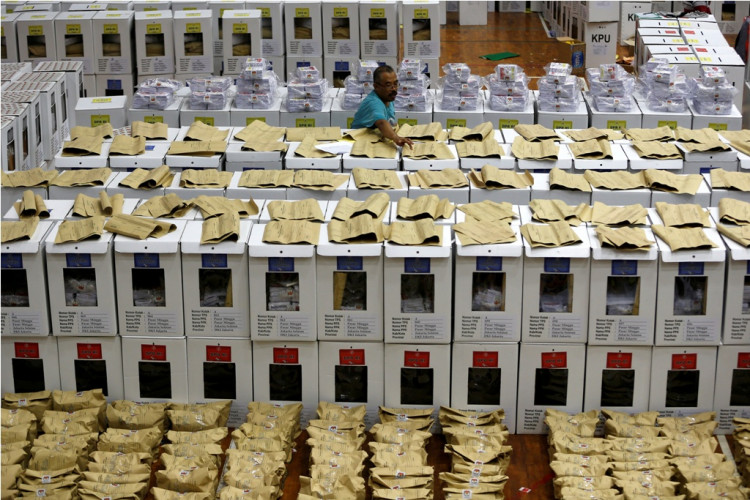Indonesia sent shock waves to the trading circle as it recorded two consecutive surplus figures in February and March. The Indonesian rupiah slightly rebounded on Monday after news of the trade surplus emerged.
According to Jakarta Globe, the last time Indonesia saw a back-to-back surplus was November 2017, prompting talks about the economy potentially picking up amid upcoming presidential elections. It is also expected that the elections will impact trade momentum no matter who wins the presidential seat.
In February, Indonesia garnered a $329 million surplus and in the next month, the trade surplus figures reached $540 million. In March, the country imported $13.5 billion worth of products while it exported $14 billion in goods.
As a response to the trade reports, the Indonesian rupiah picked up by 0.4 percent on Monday. Against the U.S. dollar, the rupiah traded at Rp14,067. These posted figures are the highest yet in over five weeks leading to the election.
Despite some recovery in trade, analysts noted that other segments slipped over the past couple of months. Exports dropped by 10 percent in March while imports fell by six percent. The data translates to Indonesia posting a trade deficit of $193 million in the first quarter of 2019.
Furthermore, some industry analysts noted that imports are expected to increase in the coming months. According to The Jakarta Post, analysts aren't very optimistic that the uptrend will continue as falling oil imports could also affect positive developments that are promising growth for the economy.
Incumbent President Joko "Jokowi" Widodo's opponent, Prabowo Subianto, also mentioned on Saturday's debate that the current administration's massive infrastructure initiatives may be taking a toll on exports. He said these projects could be hampering causes to import products more than export local goods.
On the other hand, other industry analysts are eager to see how reducing the current account deficits will play into stimulating the Indonesian economy. Some economists said improving trade performance could play a key role in potentially avoiding a similar route that 2018 took when Indonesia posted a record high of $8.5 billion in trade deficits.
Meanwhile, political experts have started weighing in on how the elections will affect Indonesian economic growth. While Jokowi has set his eyes on globalization and increased investments, Prabowo has a goal of improving the country through its major drivers.
While Jokowi appears to be leading the presidential polls, analysts indicated history has proven that surprises are possible in elections. Overall, political experts said reforms are necessary to drive growth and developments in the Indonesian economy.






